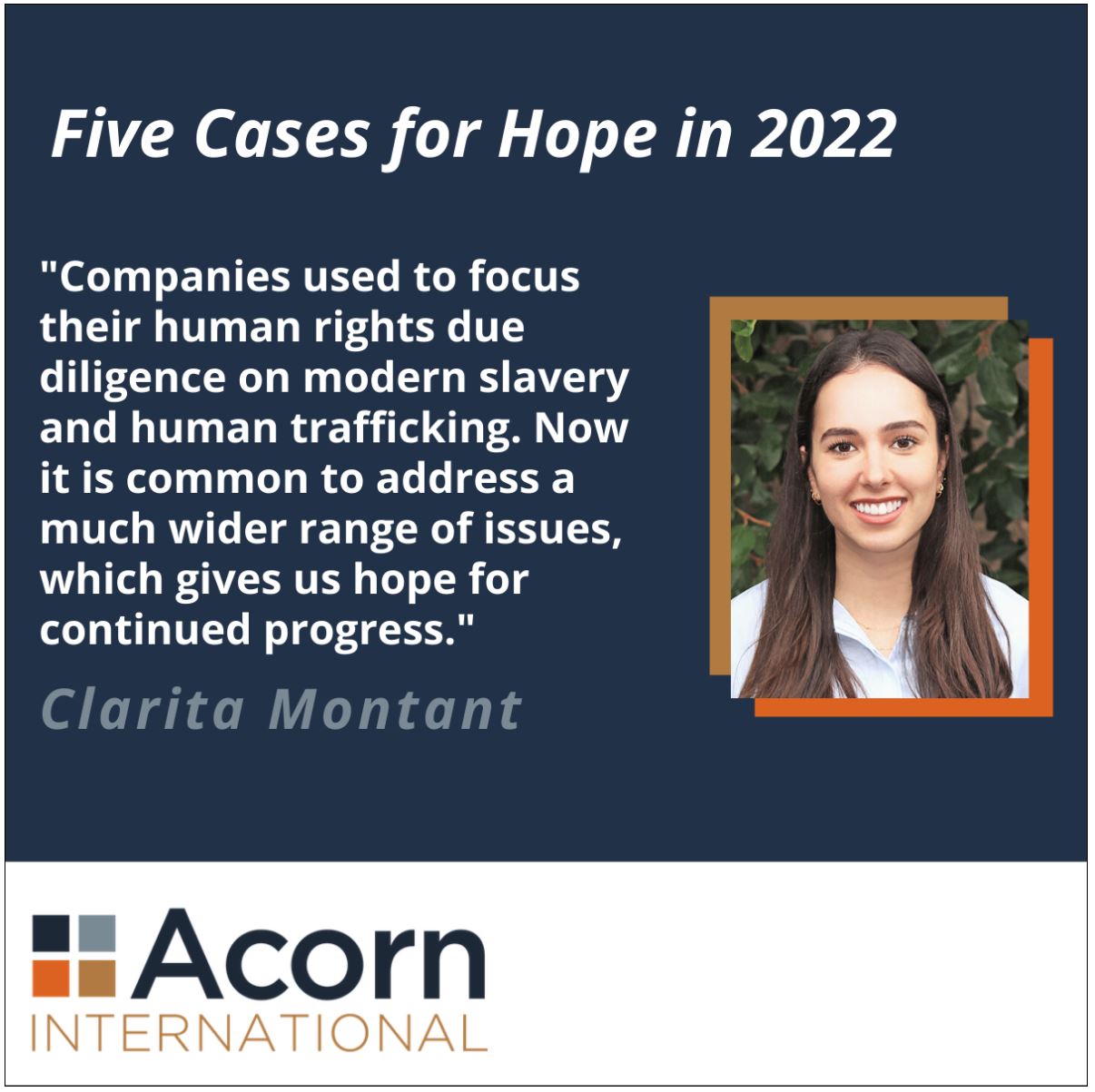5 Cases for Hope in 2022: #4 Human Rights
This is the 4th of a series of 5 posts on “5 Cases for Hope in 2022” – see https://www.linkedin.com/company/2257207
Since the new year, we’ve been posting a series of posts about global ESG crises we face – and making a case for reasons to be hopeful amidst all the gloom. This is not in any way to minimize the reality and gloomy impact of these crises or diminish the need for urgent action to address them – but rather to help us all find some added energy for progress through hope. This week’s crisis and subject for hope: human rights.
We don’t normally think positive thoughts when the subject of human rights comes up.
Human trafficking and slavery, intimidation by security forces, corruption and violation of basic civil rights are horrific problems that impact millions worldwide, especially the most vulnerable.
But in our global work on investigating and remedying human rights risks worldwide, we must maintain reasons for hope to continue making progress – so here are a few of the things that make us hopeful.
Emerging Solutions
Business and human rights have been in the spotlight these past few years, in particular as the industry celebrated the 10-year anniversary of the United Nations Guiding Principles on Business and Human Rights (UNGPs) last year. One of the most important advances has been the increased application and quality of human rights due diligence, driven in part by an initiative of the European Union to legislate corporate human rights performance through mandatory human rights due diligence (HRDD). But HRDD is only one of the many tools available for companies to manage human rights related risks. Increasingly, we are seeing companies and governments integrate human rights into business risk assessments and more transparent, participatory performance monitoring.
 Increased Awareness
Increased Awareness
The UNGPs have been a unified guiding force for companies wanting to work on human rights issues and they have supported increased awareness within companies. The Corporate Human Rights Benchmark (CHRB) observed a near doubling of benchmarked companies that publicly committed to respecting human rights between 2017[1] and 2020[2]. (See chart based on data from CHRB.)
Expanded Scope
Companies used to largely focus their human rights due diligence on modern slavery and human trafficking. Now it is common to address a much wider range of issues such as access to water, land rights and cultural heritage. We are seeing more companies routinely evaluate potential impacts on Indigenous Peoples and cultural heritage, especially in the United States, driven by interests for investors, shareholders and community groups.
Recognition of Linkage with Climate Change
The United Nations Human Rights Council recognized the right to a clean environment as a basic human right in October of last year, and participants in COP26 emphasized that those peoples’ whose human rights are most at risk, are usually those that are the least resilient to climate impacts[3]. Our team has seen increased demand from our energy industry, extractives and finance clients to make the energy transition a just transition by ensuring the race to carbon neutrality does not repeat a pattern of leaving disproportionate burden on the world’s most vulnerable. Buoyed with this increased awareness, we can ensure the progress being made on solutions to climate change are indeed just solutions.
Remaining Challenges
Initiatives and commitments like those highlighted above give us hope for progress on human rights. But talk is cheap – we know from experience that implementation of good intentions can be very difficult, particularly as global stimulus programs expire. Continued progress on fighting human rights abuses will require increased capacity by governments, greater transparency by industry and renewed energy by those of us helping both find more impactful and sustainable solutions. For our part, we take on that challenge with a good measure of hope.

[1] Corporate Human Rights Benchmark Key Findings 2017, page 24.
[2] Corporate Human Rights Benchmark Key Findings 2020, page 27.
[3] The COP26 Glasgow Climate Pact “emphasized the importance of human rights and collaboration across sectors and all parts of society to deliver effective climate action and a just transition”.
News & Notes

Acorn International
1702 Taylor St, Suite 200B
Houston, TX 77007, USA
1213 Purchase St
New Bedford, MA 02740, USA

 Increased Awareness
Increased Awareness